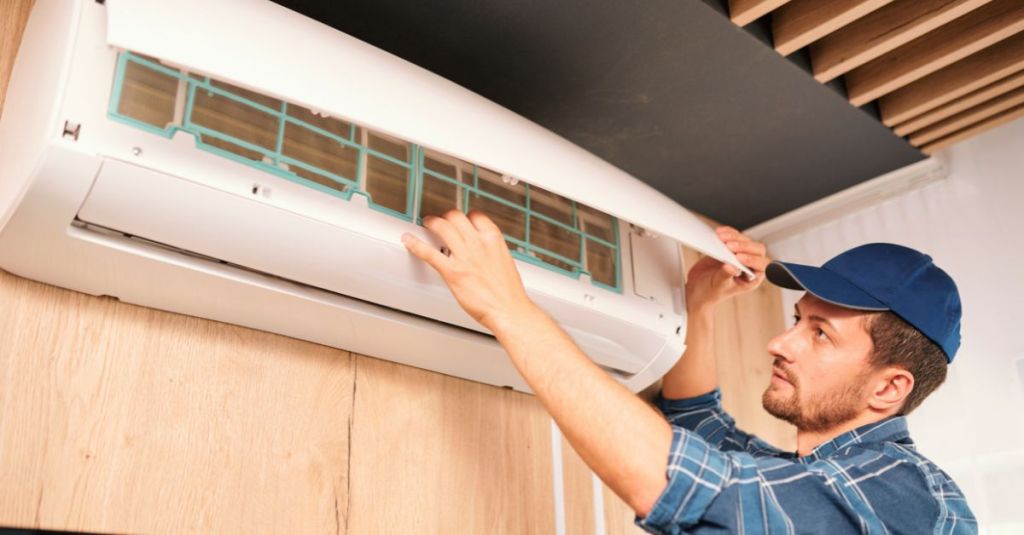The decision to repair or replace your air conditioning system is a significant one. It’s a choice that impacts your comfort, energy efficiency, and budget. In this comprehensive guide, we will explore the key factors that should influence your decision when facing the dilemma of whether to opt for air conditioning repair service or air conditioning replacement. Understanding your options and making an informed choice will ensure that your indoor environment remains comfortable and cost-effective.
Evaluating the Need for Air Conditioning Repair Service
When your air conditioning system begins to show signs of trouble, it’s natural to wonder whether a repair is the right solution. The first step is to evaluate the need for air conditioning repair service.
Common Air Conditioning Issues
Air conditioning systems are complex and can experience various problems over time. Here are some common issues that may necessitate repair:
- Inadequate Cooling: If your AC unit is struggling to maintain a comfortable temperature, it can leave you feeling hot and frustrated.
- Air Quality Concerns: A malfunctioning air conditioner may not filter the air effectively, leading to poor indoor air quality and potential health issues.
- Unusual Noises: Uncommon sounds like banging, hissing, or clanking coming from your AC unit can be indicative of issues.
- Leaking or Condensation Problems: Water or refrigerant leaks can damage your property and require immediate attention.
- High Energy Bills: Reduced efficiency can lead to increased energy consumption and higher utility bills.
- Unit Not Starting: A non-responsive AC unit can be particularly frustrating, especially on a hot day.
- Temperature Fluctuations: Inconsistent cooling and temperature variations can be bothersome.
The Benefits of Air Conditioning Repair
Opting for professional air conditioning repair service offers several advantages:
- Cost-Effective: Repairs are often more budget-friendly than a full replacement, especially for minor issues.
- Timely Solution: Repairs can address the problem quickly, reducing discomfort and downtime.
- Energy Efficiency: Properly repaired air conditioners tend to be more energy-efficient, which can lead to lower utility bills.
- Extended Lifespan: The right repairs can extend the life of your AC system, postponing the need for a replacement.
- Environmental Impact: Repairing instead of replacing is a more sustainable choice, as it reduces waste.
- Warranty Preservation: Professional repairs may be required to maintain the warranty on your AC unit.
Considering Air Conditioning Replacement
While repairs are often a practical solution, there comes a point when air conditioning replacement is the better choice. It’s essential to recognize the signs that indicate it’s time to replace your system.
Signs It’s Time for Air Conditioning Replacement
Several indicators suggest that it’s time to consider air conditioning replacement:
- Age of the System: Most air conditioning units have a typical lifespan of 10-15 years. If your system is nearing this age, it may be time for a replacement.
- Frequent Repairs: If you find yourself calling for repairs often, it may be more cost-effective to invest in a new unit.
- Inefficiency: An aging system may not operate efficiently, leading to high energy bills.
- Refrigerant Phaseout: Older systems may use refrigerants that are being phased out due to environmental concerns. Replacing your system with a more eco-friendly one can be a wise choice.
- Technological Advancements: Newer air conditioning units offer greater energy efficiency and improved cooling capabilities, enhancing comfort and cost savings.
The Advantages of Air Conditioning Replacement
Opting for air conditioning replacement offers several benefits:
- Enhanced Energy Efficiency: Newer units are designed to be more energy-efficient, which can lead to lower energy bills and reduced environmental impact.
- Improved Comfort: Advanced technology and design improvements can provide better cooling performance, ensuring your space stays comfortable.
- Reduced Maintenance: New units generally require fewer repairs and less maintenance, reducing the hassle and cost associated with keeping an older system running.
- Environmental Benefits: Newer systems use more environmentally friendly refrigerants, reducing their impact on the environment.
- Increased Property Value: An upgraded air conditioning system can enhance your property’s value and appeal to potential buyers if you decide to sell your home.
Making the Right Decision
When faced with the decision of whether to opt for air conditioning repair service or air conditioning replacement, several factors should influence your choice:
- Cost Analysis: Compare the cost of repair versus replacement, factoring in the age of your system, the nature of the issue, and the potential for long-term savings.
- Energy Efficiency: Consider the energy efficiency of your current system and how it affects your utility bills.
- Environmental Impact: Think about the environmental consequences of repairing or replacing your system, including refrigerant usage and waste.
- Comfort and Performance: Assess how your current system is meeting your comfort needs and whether an upgrade would provide a noticeable improvement.
- Future Plans: Consider how long you plan to stay in your current home and whether a replacement aligns with your future goals.
- Professional Consultation: Seek advice from HVAC professionals who can provide insights based on an evaluation of your specific system.
- Warranty Considerations: If your system is under warranty, consider how repair or replacement may impact your coverage.
Conclusion
The choice between air conditioning repair service and air conditioning replacement is a critical decision that impacts your comfort and budget. To make the right choice, it’s essential to consider factors such as cost, energy efficiency, environmental impact, comfort, and professional advice. By carefully evaluating your specific situation and weighing the pros and cons, you can ensure that your indoor environment remains comfortable and cost-effective, even in the hottest of summer days.

Leave a comment